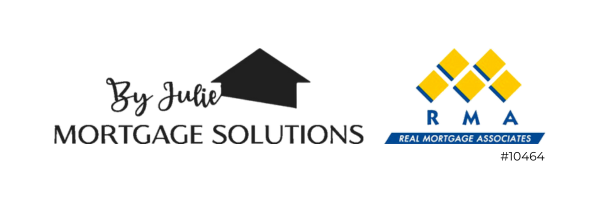Making It Happen
Acquiring a house is undeniably one of the most substantial financial obligations in your life. The process can often appear overwhelming and intimidating. However, I am here to alleviate those concerns and guide you through the road to homeownership. My ultimate aim is to ensure a seamless and stress-free experience for you. Let me assist you in navigating this journey, making it as smooth as possible.

In our first consultation, it is vital for us to delve into your budget and financial objectives. This discussion serves several key purposes:
- Assessing affordability: Are you ready to embark on homeownership at present?
- Differentiating renting from owning: Understanding the advantages and distinctions between the two.
- Determining your maximum affordable purchase price: Not solely based on qualification, but also on long-term sustainability.
- Factoring in ongoing expenses: Considering the full scope of costs associated with homeownership.
- Budgeting for down payment savings: Strategizing to achieve your desired down payment amount.
By thoroughly examining your financial situation, we can tailor our recommendations to match your current requirements and anticipate your future needs. Together, we’ll find the mortgage product that aligns seamlessly with your goals.
A pre-approval is a powerful leverage when negotiating with a seller. It demonstrates that your file and credit have been thoroughly reviewed, confirming your mortgage eligibility. With a pre-approval, you can approach negotiations confidently, knowing your financial ducks are in a row. It helps determine your maximum loan amount, ensures an affordable monthly payment, safeguards against rising interest rates, and provides leverage in negotiations.
First-time home buyers and other eligible individuals can take advantage of various incentives and programs designed to benefit home buyers. Here are a few key incentives to consider:
- Land Transfer Tax Credit: When purchasing a property, the Land Transfer Tax or Levies are payable to the Province upon transaction closure. In Ontario, British Columbia, Prince Edward Island, and the city of Toronto, there are credits available to help offset this expense for first-time home buyers. These credits are applied at closing through your lawyer, and you will need to sign an affidavit confirming your eligibility.
- Home Buyer RRSP Withdrawal: Under the Home Buyers Plan, home buyers can withdraw up to $25,000 (proposed to increase to $35,000) per buyer from an RRSP to purchase a home without incurring tax on the withdrawal. This amount must be repaid within 10 years. It can be used not only for a down payment but also for closing costs, paying off debt, moving expenses, furniture, and more. Eligibility criteria include not owning and occupying a home as a principal residence in the previous 4 years or buying/building a home for a related disabled person.
- Home Buyer Income Tax Credit: The federal government offers a tax credit of up to $750 to assist with closing costs associated with purchasing your first home or a qualified home. It is also available if you haven’t owned a home in the past 4 years. This credit can be claimed by completing line 369 in Schedule 1 of your Federal Tax Return. Qualifications include acquiring a qualifying home and not residing in another home owned by you or your spouse/common-law partner in the year of acquisition or the preceding four years. First-time buyer status is not required if you are a person with a disability or buying a house for a related person with a disability.
Take advantage of these incentives by consulting with a qualified professional and ensuring you meet the necessary criteria. These programs can provide valuable financial assistance during the home buying process.
Your down payment plays a crucial role in securing your mortgage, and understanding its source is essential for qualification. Here are common sources of down payments:
- Savings & Investments: Verification of three months’ statements is required to substantiate your down payment.
- Sale of a Vehicle or Other Assets: Providing a bill of sale, copy of the old registration, and proof of funds deposited into your bank account.
- Divorce Settlement: Submission of divorce papers and confirmation of deposited funds is necessary.
- Cash Back Mortgage: Some lenders offer a percentage of the mortgage amount on closing, typically ranging from 1% to 3%.
- Financial Gift From Family: A signed gift letter, indicating that the funds are not repayable, along with evidence of the gift being deposited into your bank account.
- RRSP Withdrawal: The Home Buyers Plan allows withdrawal of up to $35,000 per buyer from an RRSP without tax implications.
- Inheritance: Supply legal documentation and proof of deposit, ensuring the funds are readily available before making an offer on a home.
- Borrowed Down Payment: In certain cases, lenders may permit borrowing the down payment, provided the borrower has an excellent credit rating and sufficient income. Options include utilizing a line of credit, credit card, personal loan, or borrowing from a family member.
Understanding the various sources of down payments can help you make informed decisions when purchasing a home. Consult with a knowledgeable professional to explore which option best suits your unique circumstances.
Legal Fees & Disbursements: Your lawyer will charge a fee for their services, along with out-of-pocket expenses incurred.
Home Inspection: It’s recommended to order a detailed home inspection report to assess the property’s condition before finalizing the purchase.
Land Transfer Tax: Charged upon property transfer, the amount varies based on factors like home price, first-time home buyer eligibility, and location.
Mortgage Default Insurance Premium: If your down payment is below 20%, a mandatory insurance premium is added to your mortgage, paid back over time.
Property Appraisal: Lenders may require an appraisal report to ensure the property’s value aligns with the purchase price.
Interest Adjustment: When closing occurs after the first day of the month, an interest adjustment may apply until the Interest Adjustment Date (IAD).
Property Tax & Unpaid Utilities: Your lawyer confirms the payment status of property taxes, with adjustments made accordingly.
Being aware of these considerations helps you navigate the closing process smoothly. Consult with your mortgage professional for personalized guidance.
Rates: Securing the best rate and term that align with your qualifications is a priority. As licensed professionals, we have access to a wide range of lenders across Canada. Our goal is to find the right lender who will go the extra mile to earn your mortgage business.
While saving on interest is important, it’s essential to consider more than just the rate. Other factors, such as features and benefits, can outweigh rate differences. Key considerations include penalty structures, sales clauses, compounding periods, introductory rate periods, and payment privileges.
Credit: Your credit score and the information in your credit report play a significant role in determining your borrowing capacity and interest rate. To access the best options and lowest rates, a credit score of at least 620 with a clean record for the past two years is preferred, although a score over 680 is ideal.
We understand the importance of finding the right rate and credit terms for your unique financial situation. Our team is here to guide you and help you make informed decisions that align with your goals.

